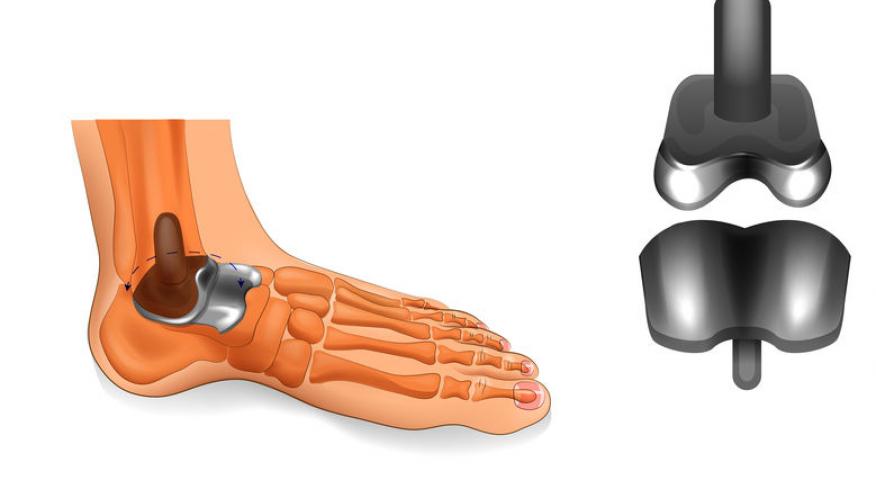Total Ankle Arthroplasty vs. Arthodeisis? Save

The Journal of Bone & Joint Surgery reports the findings of a 4-year trial comparing outcomes of total ankle arthroplasty (TAA) versus ankle arthrodesis (AA) in patients with severe ankle arthritis; finding that while both groups improved, TAA was associated with less pain and better function after 4 years.
The technology and utility of total ankle arthroplasty (TAA) has changed such that a recent Medicare study showed an increasing trend in TAA surgery - with 16.37% annual growth rate for TAA utilization (between 2002-2012)in the Unites States.
Patients with "end-stage ankle arthritis: were defined as being symptomatic with complete loss of cartilage ("bone-on-bone"). This study sought to compare treatment outcomes in overall physical and mental function and ankle-specific function, as well as pain intensity 48 months after TAA or AA.
This was a prospective multicenter, cohort study of 517 severe ankle arthritis patients who received either TAA (n=414) or AA (n=103). Endpoints measures at 48 months included the Foot and Ankle Ability Measure (FAAM) Activities of Daily Living and Sports subscales (0 to 100 points), the Short Form-36 (SF-36) Physical and Mental Component Summary (PCS and MCS) scores (0 to 100 points), and pain scores (0 to 10 points).
All patients achieved significant improvement in the Pain, Functional and SF-36 PCS scores 48 months after surgery (p < 0.001).
However, TAA patients had better FAAM Activities of Daily Living (9 points better), FAAM Sports (8 points), and SF-36 scores (3.5 points) compare to AA surgery patients. Similarly Pain scores were higher with TAA - mean improvements in worst and average pain were at least 0.9 point higher than AA at at 12, 24, and 36 months, but were less by 48 months.
By study end, 78% of TAA patients were "completely satisfied" compared to 60% of those with AA. Revision surgery was less frequent with TAA (8.7%) vs. AA (17.5%).
TAA appears a moderately better option for patients with end-stage ankle arthritis.










If you are a health practitioner, you may Login/Register to comment.
Due to the nature of these comment forums, only health practitioners are allowed to comment at this time.